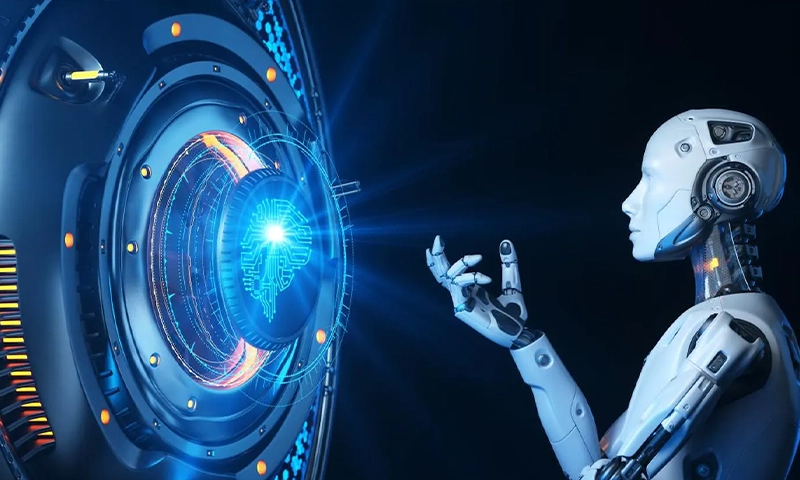
Artificial intelligence has experienced major developments in recent years and represents an emerging technology that will revolutionize the ways in which human beings live. This technology is already being introduced in the field of higher education. Emergence of the use and application of Artificial Intelligence (AI) in higher education in India has opened new possibilities and challenges. Use of AI in will bring in effective change of governance in the entire internal architecture of Indian Institutes of higher education. The prospect of use of AI includes investigation of educational implications as to how teachers would enrich them, how students would learn, and how accurate and prompt decisions can be taken in the institutes of higher education. This is important since the workload has been multiplied due to massification of higher education. Such being the scenario, help of AI is highly essential.
AI could play various roles in educational settings. The advancement of emerging computer technologies, such as quantum computing, wearable devices, robot control, and sensing devices, as well as the popularity of mobile and 5G wireless communication technologies, has provided new appearances and opportunities for applying AI to teaching and learning design. It is essential and exciting for researchers to consider how this can happen in practice.
There are various possibilities of implementing AI technologies (such as visual recognition, speech recognition, expert systems, and natural language processing) on different computer platforms or devices (including mobile devices, wearable devices, and robots) to fulfil the needs of educational purposes or learning design (such as problem-based learning, contextual learning, and inquiry-based learning) for different courses (including social studies, science, engineering, mathematics, art, design, medical and nursing courses). Therefore, it is an essential and vital issue to propose AI-based learning models or implementation frameworks by taking those emerging technologies as well as the educational theories and needs into account.
Implementation of AI-based systems offers much promise to enhance learning performance and experience of students and assist teachers to advance their teaching practice. An open research challenge here is on the evaluation of the impacts of the AI-supported learning design on students’ performances and perceptions rather than the effectiveness of AI systems. Several aspects, such as students’ learning performance, learning motivation, learning anxiety, self-efficacy, and cognitive load, can be considered. The researchers may also investigate the impacts of the AI-supported learning designs on and the performances and experience of the students with different personal characteristics, such as varying levels of learning motivation or self-efficacy.
Examples of several promising topics of research include the studies of the impact of AIED on students’ higher-order thinking, interactive or behavioural patterns, and cognitive load) have been investigated in the literature. It would also be interesting to consider applying AI to those seldom-applied domains, such as arts, design, medical and nursing courses. By employing AI technologies in new fields while considering different issues, researchers might be able to find opportunities to cope with the problems that cannot be resolved using the conventional technology-enhanced learning approach.
Distinct classes of educational technologies often imply different pedagogical perspectives. The diverse functions of AIED (namely, tutor, tutee, learning tool/partner, and policy-making advisor) suggest distinct concepts of teaching and learning. Based on existing educational theories, researchers can derive new interpretations or ideas on the pedagogy and the learning sciences steaming from AIED applications.
Incorporating new technologies into educational settings implies new concepts of learning design. Consequently, it is a promising time to reconsider and revise existing learning and assessment strategies. A problematic example is that, if competition-based learning is employed for classroom writing, the teacher needs to review manually papers submitted by students. This approach implies that the teacher would announce the winner after all the students have submitted their reports. In an AI-supported learning design, an AI system could serve as an intelligent article reviewer in such a competition-based activity, implying that the learning design or competition guidelines could be quite different. One new rule could be that the students can revise and resubmit their articles after receiving the review results and feedback from the AI reviewer before the time is up.
The advancement of AI has brought computer-supported education to a new era. By incorporating human intelligence, a computer system could serve as an intelligent tutor, tool, or tutee as well as facilitating decision making in educational settings. The integration of AI and education will open new opportunities to vastly improve the quality of teaching and learning. Teachers can benefit from intelligent systems that aid in assessments, data collection, enhancing learning progress, and developing new strategies. Students can benefit from smart tutors and asynchronous learning in advancing learning outcomes.
The emergence of big data, cloud computing, artificial neural networks, and machine learning has enabled engineers to create a machine that can simulate human intelligence. Building on these technologies, this way to perceive, recognize, learn, react, and solve problems as artificial intelligence (AI). Inevitably, such smart technologies will revolutionize the workplaces of the future. Thus, while AI can interact and help humans perform at higher levels, it is emerging as the next big innovation.AI is currently viewed by many as a driver that is integral to the fourth industrial revolution, and it may trigger the fourth revolution in education.